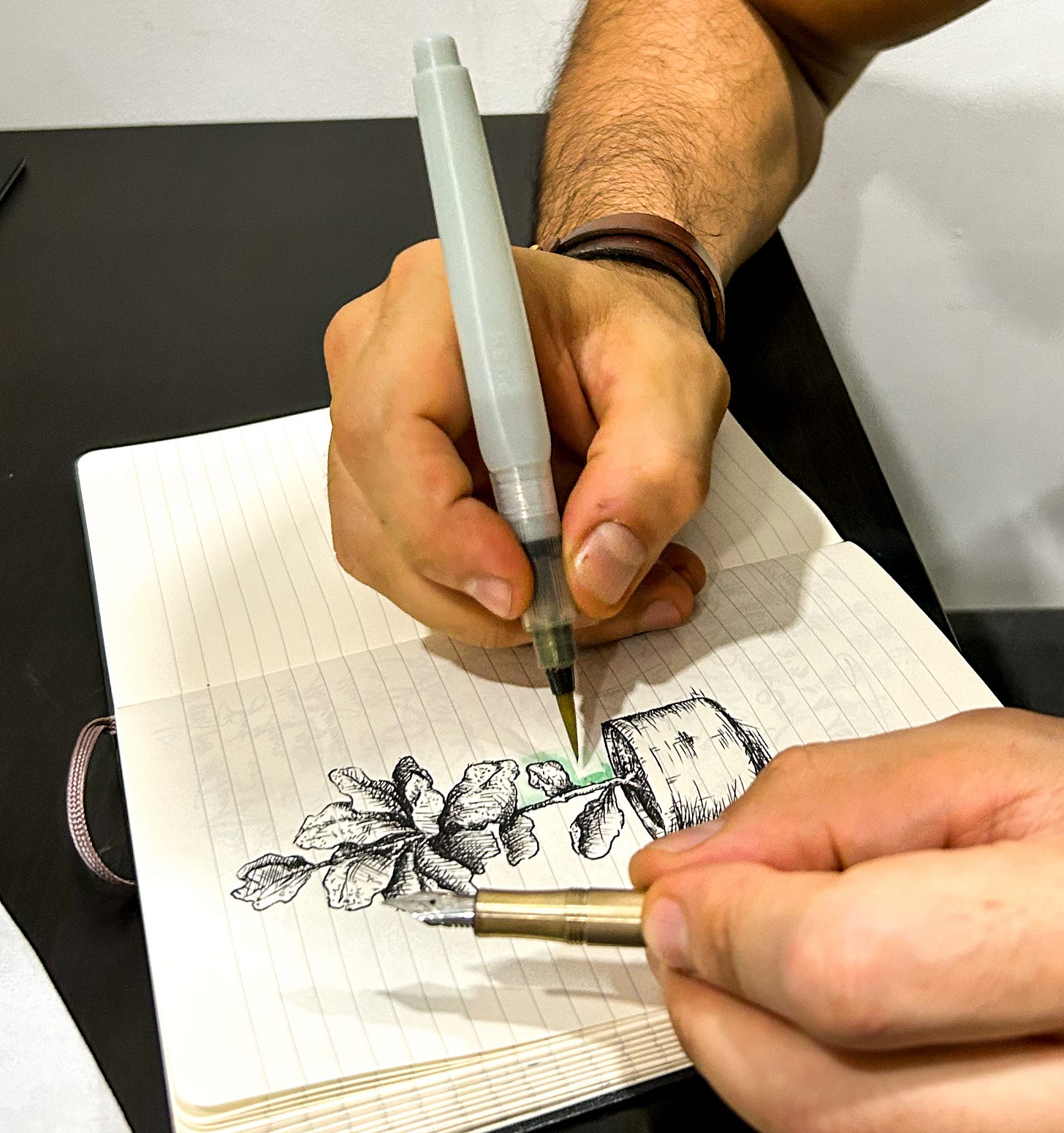Why Try to Improve Your Notes?
It is a known fact that brains are for creating ideas rather than holding them. But is there more to improving your notes than a simple memory aid?

Most people who expend time and energy building their note vaults sooner or later provoke an eyebrow-raising “Why even bother improving a note-taking skill?”. After all, this is what we’ve all been doing since we learned to write. Most people are confident they’ve got, at least, this one covered. Write a thought down, and off you go. What’s the deal with all of these sophisticated methodologies and PKM?
Depending on your goals, the above statement will usually be valid. There’s no need to push the envelope beyond the famous twenty per cent of the Pareto principle. But there are many cases where a fleeting throw-away sticky note is far from what you truly need. Since you’re reading this publication, chances are you’re someone who doesn’t settle for the basics.
As is often the case, using analogies is a good way of explaining an idea. So, let’s.
Take singing, for instance. Everybody sings, beautifully or badly, alone in the shower, drunk in a karaoke bar, or softly when trying to put a child to sleep with a lullaby. For most people, this fulfils their needs just fine. Others, for one reason or another, feel like they need more. Therefore, they delve into breath control, scales, warm-up exercises, etc. They put in time, effort, energy, money, and other valuable resources to improve at singing.
The same could be said about drawing. Much like singing, dancing, videography or photography, to name but a few, drawing is also something you’ll likely do without any formal education. This involves drawing basic shapes, stick-men, colouring, doodling to keep your mind busy, diagramming, etc.
from wrote an entertaining book I read a few years ago called “The Sketchnote Handbook”. It demonstrates how you can use basic atomic components, such as circles, squares and triangles, to build more complex constructs out of them.You probably do it at work, at home, alone, or with your kids. Your goal will likely be achieved as long as people, or the future you, recognise the meaning behind your sketches. But what if you want more? Many people decide it’s worth investing in understanding light, colour, composition, and art supplies to improve their drawing abilities, and it’s great.
Although it may not be evident to most people how they could improve their note-taking, there are techniques and tried-and-true approaches, like learning breath control for singing or cross-hatching techniques for sketching. There’s much more to it than meets the eye. And since writing is thinking on paper (or, nowadays, typing is thinking on a digital device), improving your note-taking will enhance your thinking. Who wouldn’t like that?
Note-taking is capturing relevant information, and capturing knowledge is a foundation for organising, which, in turn, is a foundation for understanding and making sense, a cornerstone of creation and invention.
It’s an infinite improvement loop. A life-long journey of self-betterment that will pay back manifold if you care for turning your Personal Knowledge Management into a continuous deliberate practice. We discussed it in one of the earlier instalments.
It shouldn’t be a struggle—far from it.
It’s about browsing bookstores, experimenting with pen-ink-paper combinations, watching movies with a notebook, automating your smart-watch shortcuts for frictionless idea capturing, meeting with like-minded thinkers over a coffee, reading with a highlighter, reviewing notes in your custom journal, and so much more.
This newsletter introduces you to note-taking techniques that’ll propel your thinking and organising further. You don’t have to use them if you don’t need them, but you’ll greatly benefit from, at least, knowing they exist. Understanding these tricks will unlock the ability to customise or combine them to create your workflow. It will make your thinking intentional and systematic. It’ll inevitably grow that squishy muscle you carry around in your skull.





Thanks for mentioning my book! I appreciate the kind words and more important — that it helped you!